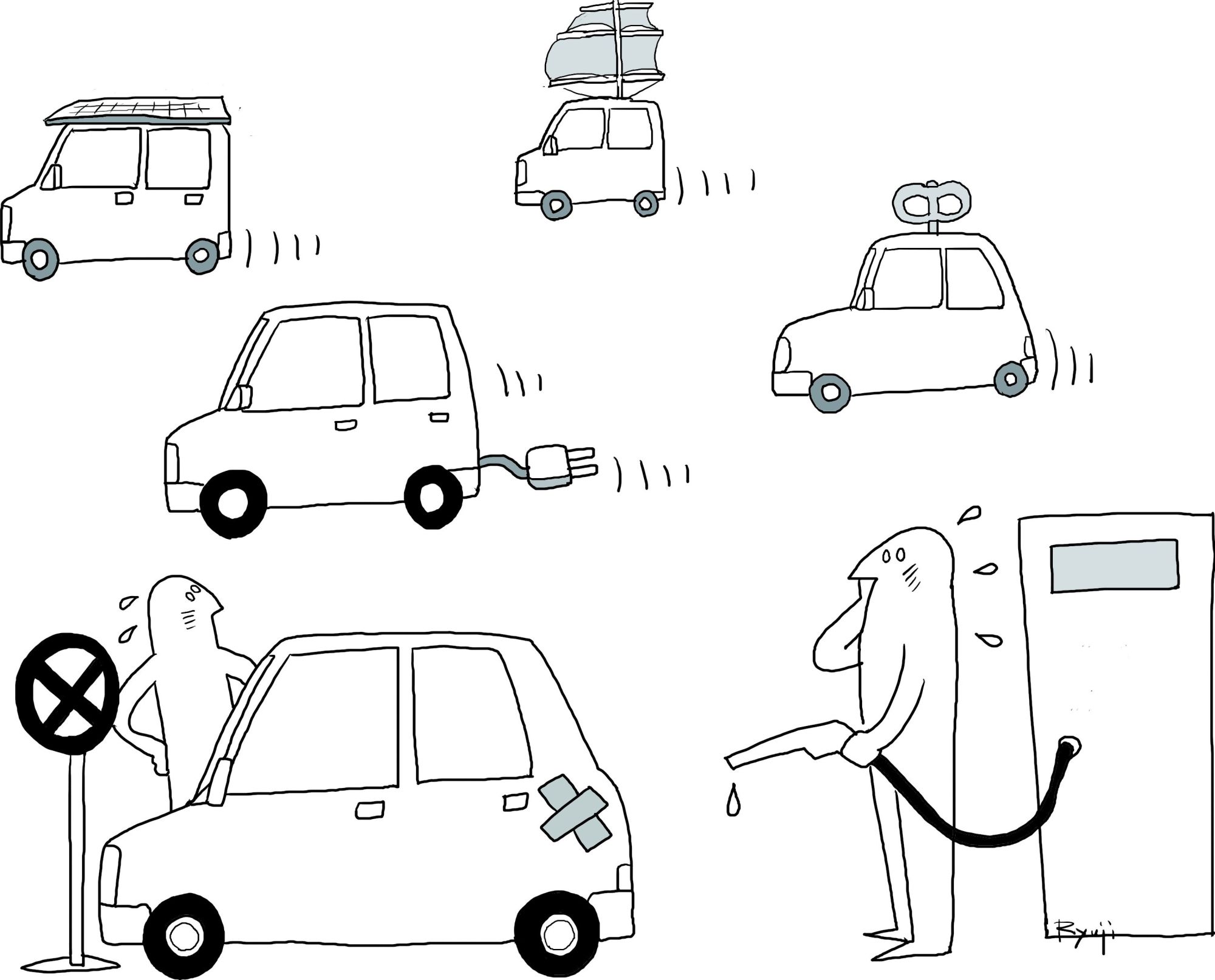Britain and France announced recently that the sale of gasoline- and diesel-powered motor vehicles would be banned by 2040. The Chinese government has also moved up by 10 years to 2030 the date for prohibiting the sale of such vehicles, while also obligating automakers to power at least 10 percent of new vehicles produced or sold in and after 2019 with new energy sources, like electric vehicles (EVs), plug-in hybrid electric vehicles and fuel cell cars.
To attain the goals under the Paris agreement on climate change, it is imperative to replace vehicles powered by conventional engines emitting huge amounts of carbon dioxide with EVs and other new energy vehicles. The Chinese government defines "new energy vehicles" as those that emit little or no CO2. A motor-driven EV carrying a storage battery certainly does not emit CO2 when driven. However, CO2 is still emitted at the source of electric power generation to varying degrees.
Here, I would like to first quantify how an EV serves to reduce the per-unit-distance emission of CO2 compared with a gasoline-powered vehicle (and dispel the misunderstanding that such a reduction is achieved only when nuclear power is the primary source of electricity supply), and second discuss the possibility that such an EV revolution might give rise to a serious unemployment problem.


















With your current subscription plan you can comment on stories. However, before writing your first comment, please create a display name in the Profile section of your subscriber account page.